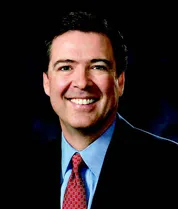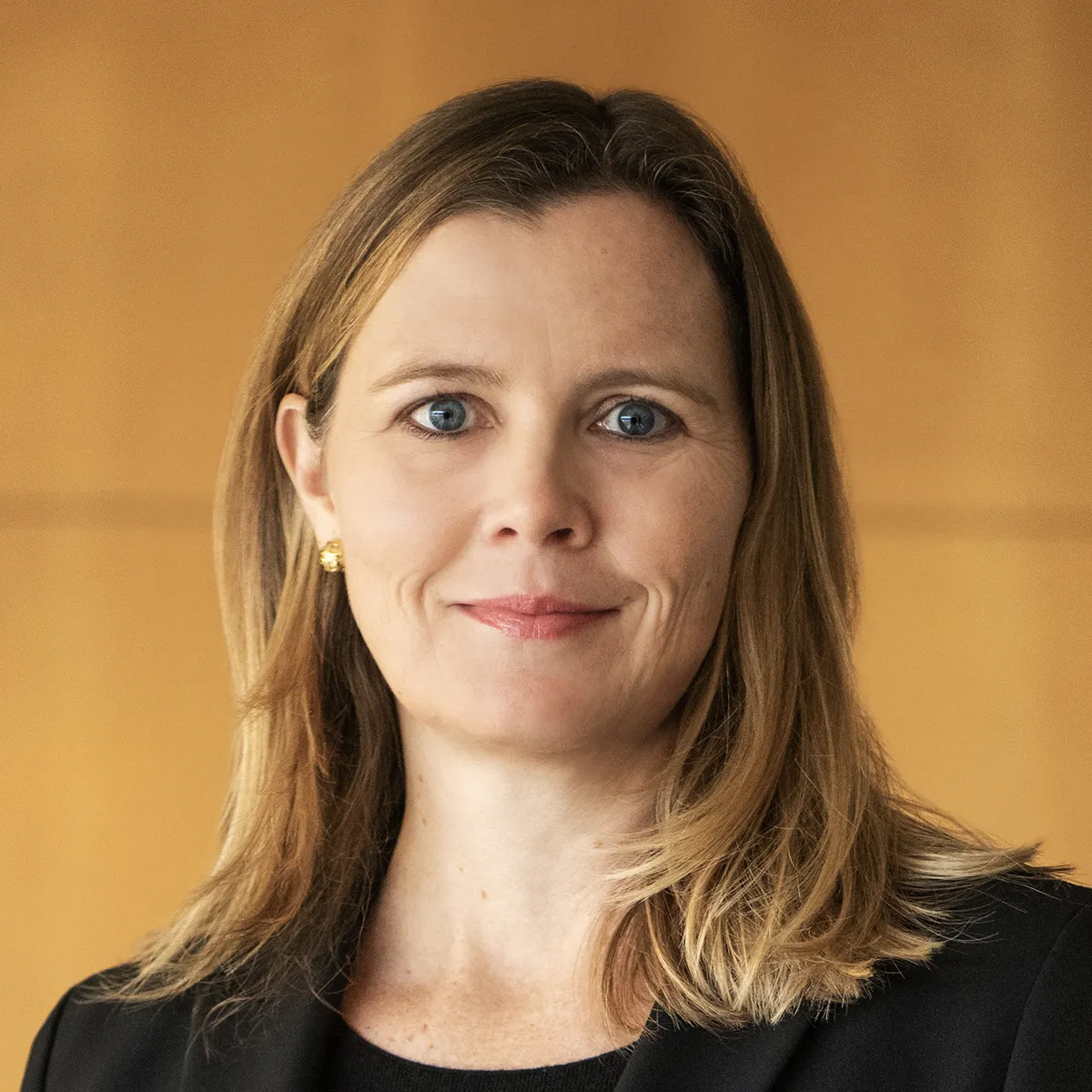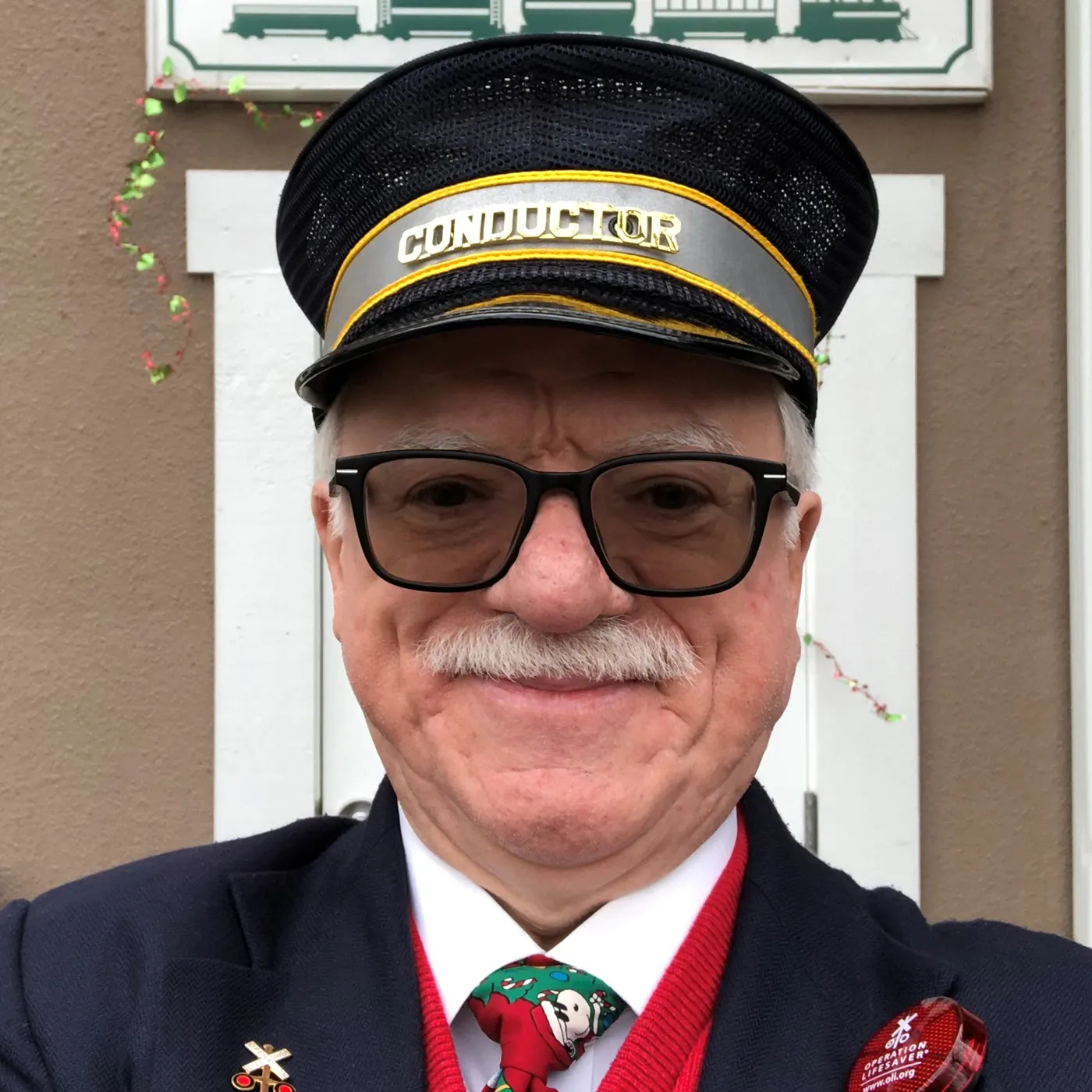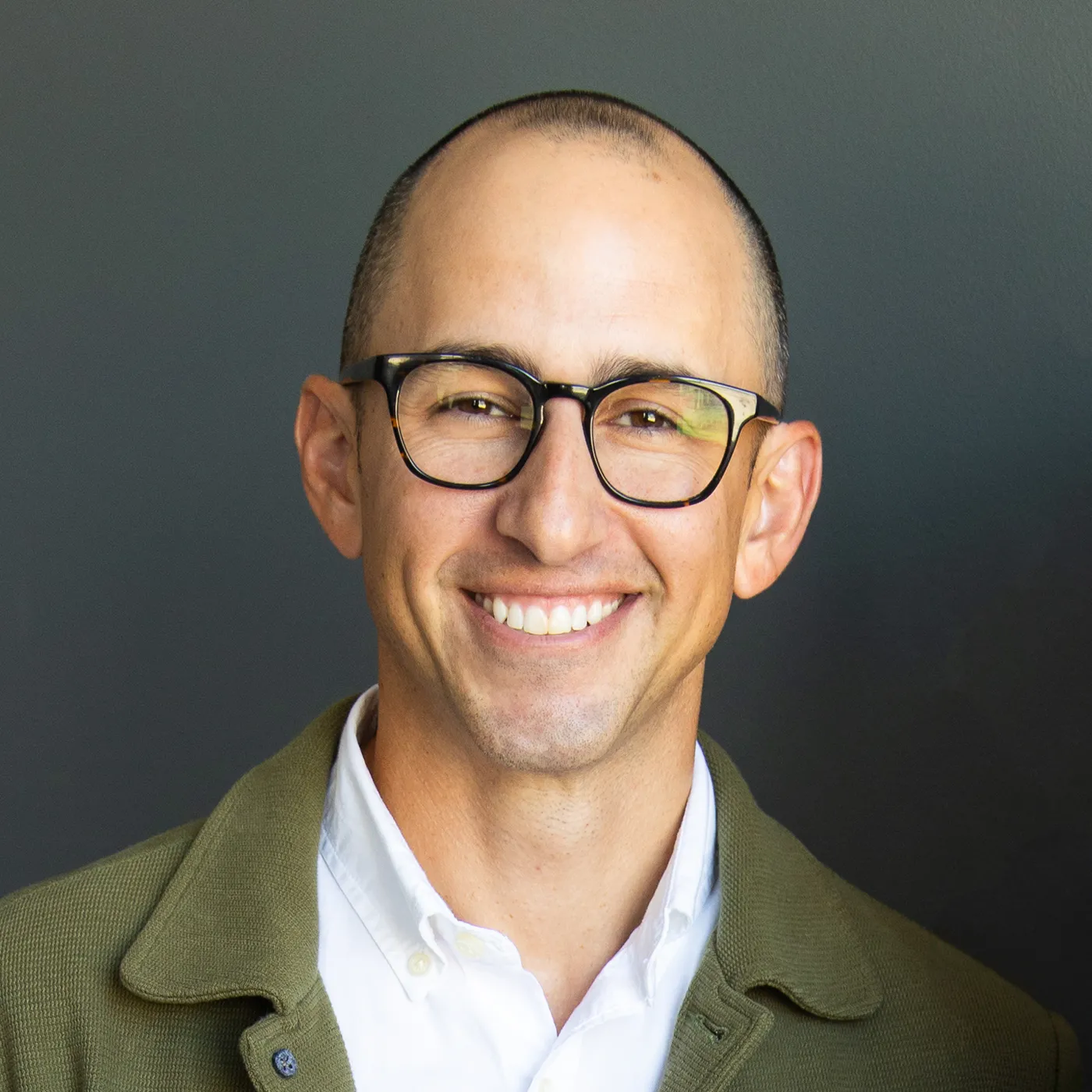James Comey, '85: Life of the Mind Leads to Life of Public Service

The year after he graduated from the Law School, while he was clerking for a District Court judge in New York City, James Comey, ’85,attended a bail hearing for the mobster Anthony “Fat Tony” Salerno, boss of New York’s Genovese crime family. “It was riveting to watch,and the two prosecutors were not much older than I was,” Comey recalls. “It was the coolest thing I’d ever seen and as soon as I left the court room I called my girlfriend—now my wife—and told her I knew what I wanted to do with my life.” That epiphany tied up some loose ends for Comey, and led ultimately to his participation, later in his career, in some momentous events at the highest levels of government. He had entered college as a premed student and then become engrossed in questions of ethics, and before he knew it he had a dual major, in religion and chemistry.Graduating with degrees in both, he decided that he had little zeal for being a doctor and decided to try law school.
He found studying law to be very appealing—“the life of the mind at the Law School was addictive,” he says—and his experiences at the Mandel Legal Aid Clinic deeply satisfied his moral sense—“helping real people get justice was completely exhilarating.” Moreover, he says he loved “the palpable sense of engagement with the life of the country that permeated the Law School, the feeling that you really could make a difference.”
His experience in that New York courtroom showed him how he wanted to put his experiences at the Law School into practice.He began doing that in 1987, in the office of the US Attorney for the Southern District of New York, where he remained for six years, becoming deputy chief of the criminal division.
Then, honoring a commitment to his wife, who was not fond of living in New York, he took a job at a Richmond, Virginia, law firm.Three years of private practice left him itching to return to the prosecutorial realm—“I wanted to get out of bed again every morning knowing I was going to do good,” he remembers—and in1996 he took the reins as managing attorney in the Richmond division of the US Attorney’s office. There he received considerable attention for running one of the busiest and most innovative federal prosecutor’s offices in the nation, and for an aggressive initiative against illegal handguns.
Within a few weeks after the 9/11 terrorist attacks, Comey was asked to return to the Southern District as its leader. Cognizant of his promise to his wife, Comey discussed the New York offer with her. “She said, ‘You can’t say no,’” he recalls, and so the family,including five children, headed back to New York. They lived about fifty miles from the city, and Comey made the long commute every day.
Two years later, the White House asked him to become Deputy Attorney General, the second-highest official at the Justice Department.As Acting Attorney General when John Ashcroft, ’67, had been felled by a severe illness, Comey refused to renew the certification of the domestic surveillance operations of a national agency and intervened when others tried to persuade the hospitalized Ashcroft to overrule him. He also appointed Patrick Fitzgerald to vigorously investigate leaks related to the CIA affiliation of Valerie Plame. None of those actions endeared him to partisans in the administration.
Subsequently, in testimony before Congress, he harshly characterized the politically motivated firings of eight US Attorneys that had occurred after he left the White House, saying that US Attorneys “had to be seen as the good guys—not as this administration or that administration.”
Out of government now for seven years—he served as general counsel and senior vice president at Lockheed Martin until 2010, and now is the top lawyer at Bridgewater Associates, which for the last two years was ranked as the largest and best-performing hedge fund in the world—Comey acknowledges that he has not lost the yen to be one of the “good guys” in government. “If the right opportunity came along, I’d surely take it,” he says, “but it’s hard to see just how that might happen, since some Republicans think of me as a Democrat and Democrats think of me as a Republican.” If there’s any truth to recent rumors that he appeared on President Obama’s shortlist of possible Supreme Court nominees and that he was considered as a possible new head of the FBI, there may still be some people who are looking beyond party affiliations to find those with the kind of intellect and moral compass that James Comey developed early in his life, nourished at the Law School, and put into practice in public service.


